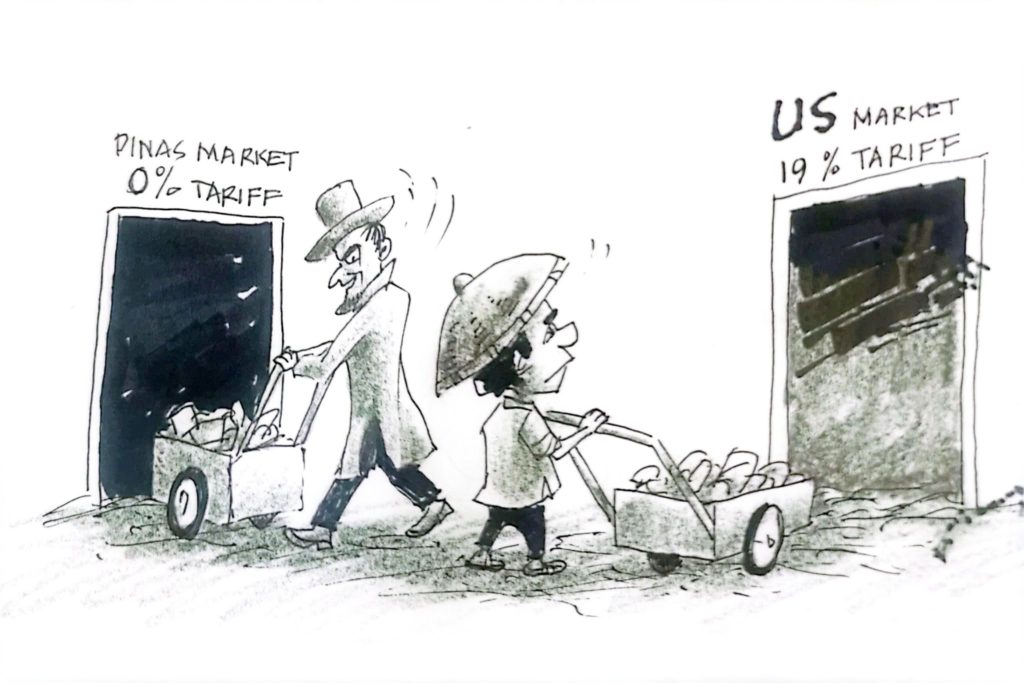The newly signed business deal during President Bongbong Marcos’ recent visit to the US is cause for concern: American products enter the Filipino market duty-free, but Philippine products are subjected to a 19% duty. This asymmetric agreement severely disadvantages the Filipino economy and imperils the interests of the local industries.
An asymmetric setup indicates either deep-seated incompetence or risky submissiveness. Trade agreements are intended to be negotiated in the spirit of mutual advantage, not as concessions to existing strong economies. It is the responsibility of the Philippine state to look out for its economic interests, not to deliver these on a platter. Awarding a foreign state unlimited access to Philippine markets without negotiating for equal terms is a strategic blunder that will take decades to reverse.
The consequences of the pact can be felt. Domestic producers, already suffering from high production costs and inadequacy of infrastructure, will now have to contend with cheaper, duty-free American imports. Small businesses, manufacturing, and farming will bear the brunt. With neither buffer nor leverage, the Philippines is a dumping ground for other nations’ foreign surpluses. At the same time, its own exports are hit with excessive tariffs and become uncompetitive in the same market it was given entry. This is economic surrender, not fair trade.
Others would justify this deal by saying it opens up investment possibilities or improves diplomatic relations. But diplomacy on the back of national interest is not diplomacy—it is capitulation. Investment is not a favor but should go along with conditions that will lead to national growth, not dependency. A government that enters into such an agreement does not know how power is exercised on the world platform or is too scared to stand up for itself. In any case, the Filipino people have to bear the consequences.
This agreement must be scrutinized, questioned, and if necessary, withdrawn. Future negotiations must be led by masters who are educated on the economics of trade and committed to furthering the long-term interests of the country. Trade policy must be for national development, not disinvestment in it. The Philippines must stop begging for leftovers and start acting like a sovereign country worthy of respect.




